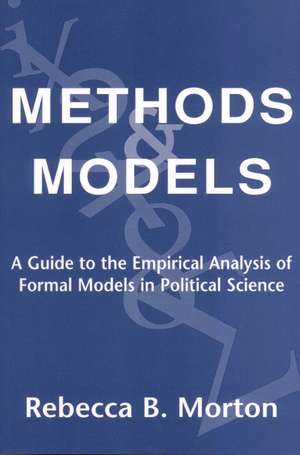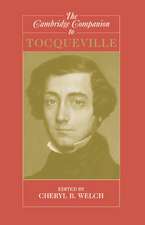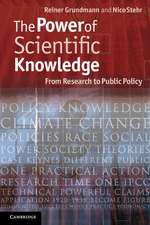Methods and Models: A Guide to the Empirical Analysis of Formal Models in Political Science
Autor Rebecca B. Mortonen Limba Engleză Paperback – 27 aug 1999
| Toate formatele și edițiile | Preț | Express |
|---|---|---|
| Paperback (1) | 264.18 lei 6-8 săpt. | |
| Cambridge University Press – 27 aug 1999 | 264.18 lei 6-8 săpt. | |
| Hardback (1) | 560.14 lei 6-8 săpt. | |
| Cambridge University Press – 27 aug 1999 | 560.14 lei 6-8 săpt. |
Preț: 264.18 lei
Nou
Puncte Express: 396
Preț estimativ în valută:
50.55€ • 52.93$ • 41.93£
50.55€ • 52.93$ • 41.93£
Carte tipărită la comandă
Livrare economică 10-24 aprilie
Preluare comenzi: 021 569.72.76
Specificații
ISBN-13: 9780521633949
ISBN-10: 052163394X
Pagini: 340
Dimensiuni: 152 x 229 x 19 mm
Greutate: 0.46 kg
Ediția:New.
Editura: Cambridge University Press
Colecția Cambridge University Press
Locul publicării:New York, United States
ISBN-10: 052163394X
Pagini: 340
Dimensiuni: 152 x 229 x 19 mm
Greutate: 0.46 kg
Ediția:New.
Editura: Cambridge University Press
Colecția Cambridge University Press
Locul publicării:New York, United States
Cuprins
Part I. Introduction: 1. Political science's dilemma; Part II. Formal Models in Political Science: 2. What makes a model formal?; 3. The variety of formal models; Part III. Empirical Evaluation of Formal Models: 4. Fundamentals of empirical evaluation; 5. Evaluating assumptions; 6. Evaluating predictions: equilibria, disequilibria, and multiequilibria; 7. Evaluating relationship predictions; 8. Evaluating alternative models; Part IV. A Second Revolution: 9. The present and the future; 10. References.
Descriere
This book explores how empirical analysis has, can, and should be used to evaluate formal models in political science.












